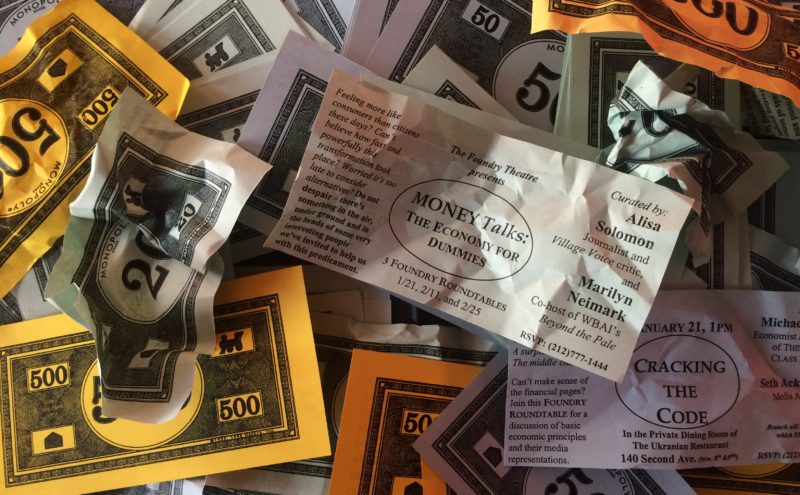
A series of roundtables with guest journalists and economists to help us critically unpack the language and workings of contemporary economics—local, national and global. Using random financial articles from the newspapers, the audience isolates terms and concepts they want the panelists to break down, and begin to unravel the ways these terms and their practices are determining the evolution of our culture.
Featuring
Seth AckermanKevin Danaher
Naomi Klein
Robert Naiman
Michael Zweig
Moderated & Co-Curated by
Marilyn NeimarkAlisa Solomon
Lead Producer:
Melanie JosephJanuary 21, Feb 11, February 25, 2001 : Cooper Union, New York City
Dialogue One
Cracking the Code / Reading the News
By taking random articles about the economy from the daily newspaper, an economist and a media critic helped us to parse some of the basic terms and principles of the domestic economy: the stock market, the “middle class”, national debt, gross domestic product, unemployment, etc. and the ways mainstream media presents these concepts to the general public.
With Seth Ackerman & Michael Zweig
Moderated by Alisa Solomon & Marilyn Neimark
– Michael Zweig
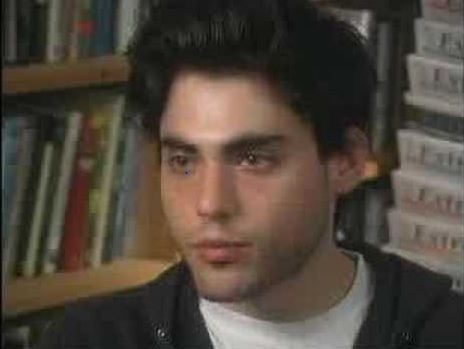
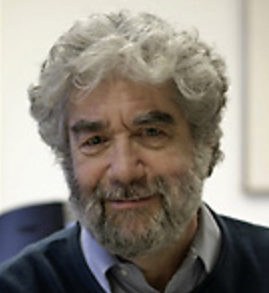
Money Talks Moderators/Co-Curators:
 Alisa Solomon,
Alisa Solomon,Writer and theatre critic for the Village Voice, Author
[bio from Jan, 01]
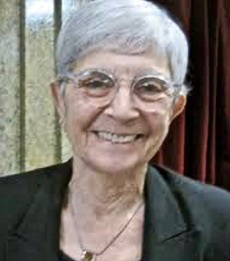 Marilyn Kleinberg Neimark, Print and Radio Journalist – WBAI’s Beyond the Pale; Co-founder of Jews for Racial and Economic Justice
Marilyn Kleinberg Neimark, Print and Radio Journalist – WBAI’s Beyond the Pale; Co-founder of Jews for Racial and Economic Justice[bio from Jan, 01]
Dialogue Two
Understanding the Global Marketplace
In this meeting, an economist, media critic and a cultural critic defined the basic principles and the turbulent history of globalization. Topics discussed included third world debt, free and fair trade, and the implications of human rights on international labor.
With Seth Ackerman & Robert Naiman
Moderated by Alisa Solomon & Marilyn Neimark
– Robert Naiman

Seth Ackerman (see above)
Dialogue Three
Productive Areas of Intervention
Activist and author Naomi Klein and Kevin Danaher, co-founder of Global Exchange, explore with us some of the active resistance and current reform experiments – including the protests in Seattle and Washington D.C., the boycott of “American” merchandise produced in international “sweatshops,” and smaller—but no less significant—practices of intervention that people make in their everyday lives.
Moderated by Alisa Solomon & Marilyn Neimark
– Naomi Klein
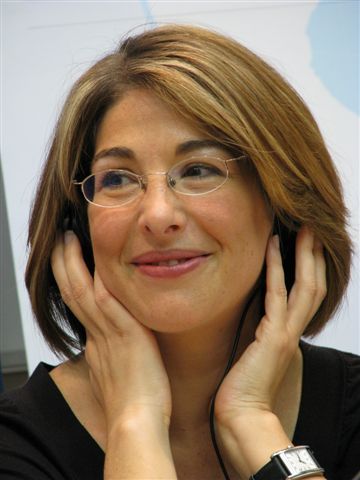
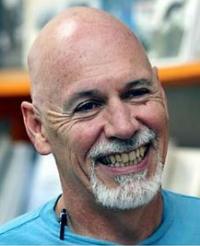
Highlights from all Dialogues
The Clinton Boom and the Recession
The concern that is being voiced is that the US doesn’t have enough savings. Because the reason the economy has been growing as fast as it has over the past 5 or 6 years—and it’s been growing faster than it had over most of the previous 20-25 five years, that’s why they talk about this miraculous economy—is because not just consumers but businesses have been spending at a much higher rate and have been saving at a much lower rate, and have been borrowing huge amounts of money to finance their spending. Now the more businesses and consumers borrow and spend, the more the economy’s going to keep expanding. But on the other hand, the limit comes at some point, as everybody knows. –Seth Ackerman
Social Security
There’s a lot of money, energy and time spent on trying to convince us that there’s an impending Social Security crisis that’s going to drag the nation into poverty and despair. It’s hokum. If you’re going to have to come up with some sort of extra savings, anybody could probably think of better places to take money out of than Social Security and Medicare. You could also increase savings by having the government tax rich people more and buying back government bonds. Economically speaking those are equivalent transactions; both of them raise savings and lower consumption, and then your problem is solved. But that’s not an option that tends to come up. –Seth Ackerman
The Fed
The Federal Reserve…Who elected them?…Nobody elected them. It’s an unelected body, even though Alan Greenspan is the single most important economic policy maker in the country. He’s not elected— he was appointed by the president. And moreover, the Federal Reserve committee that sets monetary policy has 12 members, and 5 of them are appointed by local reserve banks that are owned by private banks. So ultimately almost half of the committee that sets our monetary policy is appointed indirectly by the nation’s private bankers. –Seth Ackerman
Monetary vs. Fiscal Policy
Where did the Fed come from? Alan Greenspan is the most important figure, but not 40 years ago, the head of the Fed was some reasonably minor banking functionary. There’s nothing in the structure of the economy that requires Alan Greenspan to be so important. His is because there’s this constellation of power relations which have made monetary policy into what it is now — instead of taxes, instead of government spending, instead of what’s generally called fiscal policy. Fiscal policy used to be the main avenue by which economists thought we could influence the economy; fiscal policy is controlled by congress; it is more accessible to democratic control. –Michael Zweig
The Stock Market, Inflation, and Unemployment
People with a lot of money in stocks and bonds don’t like inflation, because when prices rise fast it erodes the value of the money they hold. It’s generally true that when unemployment goes lower, inflation goes a little higher, and in that trade-off, people have different interests. Those who work for a living would rather have lower unemployment, but if you have a lot of money in stocks and bonds, then the unemployment rate is not much of an issue for you. But when unemployment is getting too low for the tastes of those who tend to control the Federal Reserve, then Alan Greenspan can raise interest rates, making it harder for business to borrow money, hire workers, and make investments—and that’ll slow down the economy and raise unemployment. And ninety-nine percent of the time the Federal Reserve raises interest rates, its concern is that unemployment is too low. –Seth Ackerman
Globalization
The doesn’t really mean what it sounds like it means. It’s been accompanied over the last 20 years by a tremendous movement toward free-market, deregulatory, pro-business policies in the domestic countries involved… the destruction of unions, elimination of labor laws and labor regulations and, in most countries, a huge upward redistribution of wealth and an increase in profits.–Seth Ackerman
The World Bank and Globalization
You see this all the time in these poor countries. They’ll say to the World Bank, for example, we need to build a network of local, rural health clinics. This can be very simple—you can buy most of the building materials in the country itself so they can pay for it in their local currencies. Yet the World Bank will come in and insist that they borrow dollars. Why do they do that? Ultimately the World Bank knows that if these countries have a debt burden denominated in dollars, it requires them to constantly come up with the dollar earnings to pay them back, which means that instead of producing for the local market and the very basic needs that most of these very poor countries have, they have to produce for the world export market. –Seth Ackerman
Money and Control of the IMF & World Bank
The IMF and the World Bank both operate on the basis of one dollar, one vote. In this sense they are like corporations. The richest countries in the world—the U.S., Canada, Britain, Germany, France, Japan and Italy—have a working majority of the shares and therefore these seven countries basically own and control the IMF and the World Bank. The U.S. has the biggest share, one fifth. Where does the money come from? It comes from us, the taxpayers. –Robert Naiman
IMF Conditionality
The IMF can step in and lend money on an emergency basis to a country so that they can pay back their debts. But as a condition of the loan, the country has to agree to a laundry list of demands that the IMF will make, changing all sorts of economic policies in that country. Now the changes they have to make can be anything from lowering their minimum wage, to weakening labor laws so that unions can’t operate as freely. It almost always involves reducing the money spent on social programs such as health, education, and welfare. –Seth Ackerman
Debt Forgiveness
When a commercial bank lends you money, if you cannot pay it off, standard, legally mandated accounting practice in the United States requires the bank to eventually write it off as a non-performing loan. The IMF and the World Bank have always resisted this. At the end of the day, it’s about control. The debt is the leverage that allows the IMF and the World Bank to run these countries… –Robert Naiman











